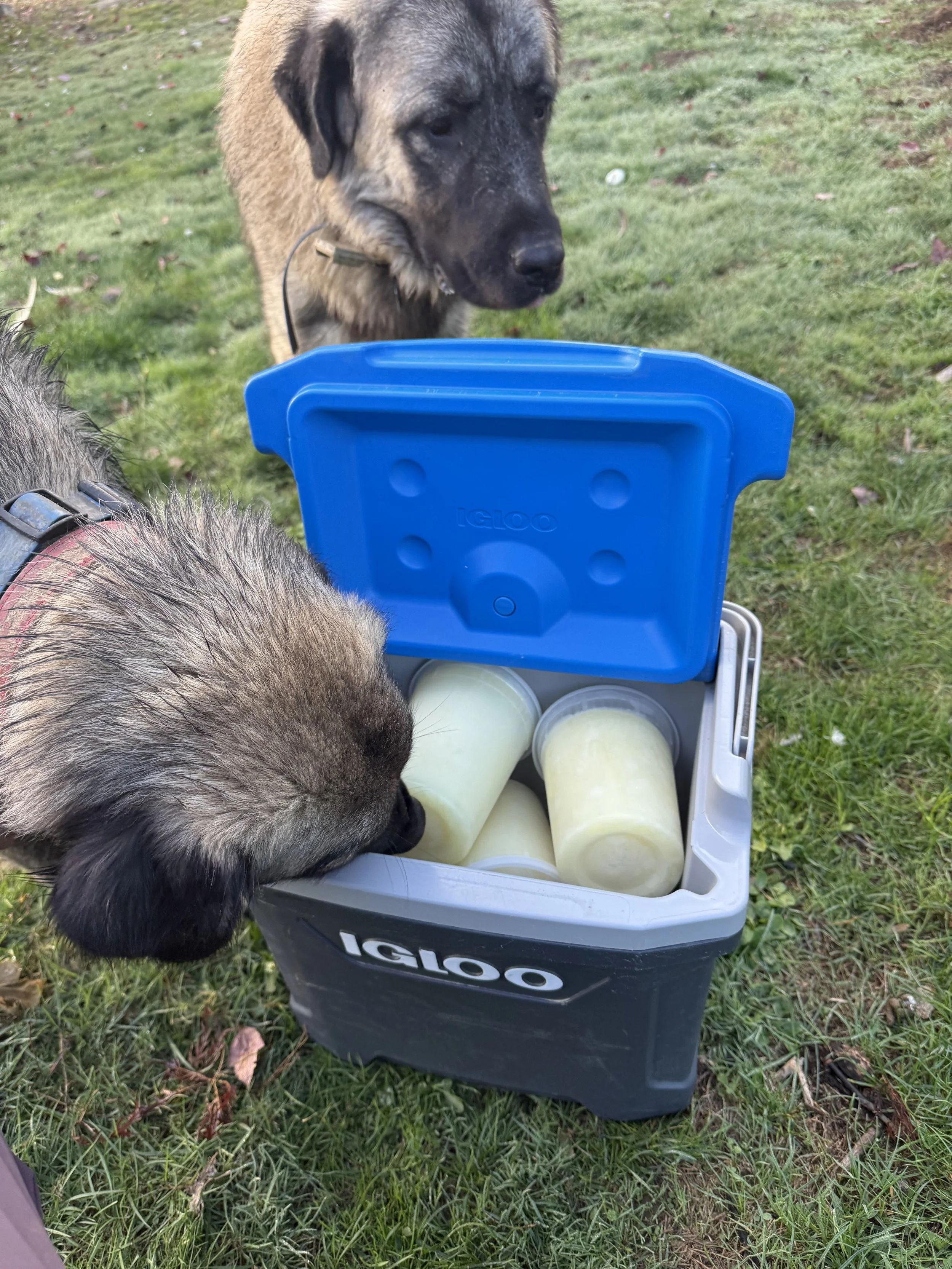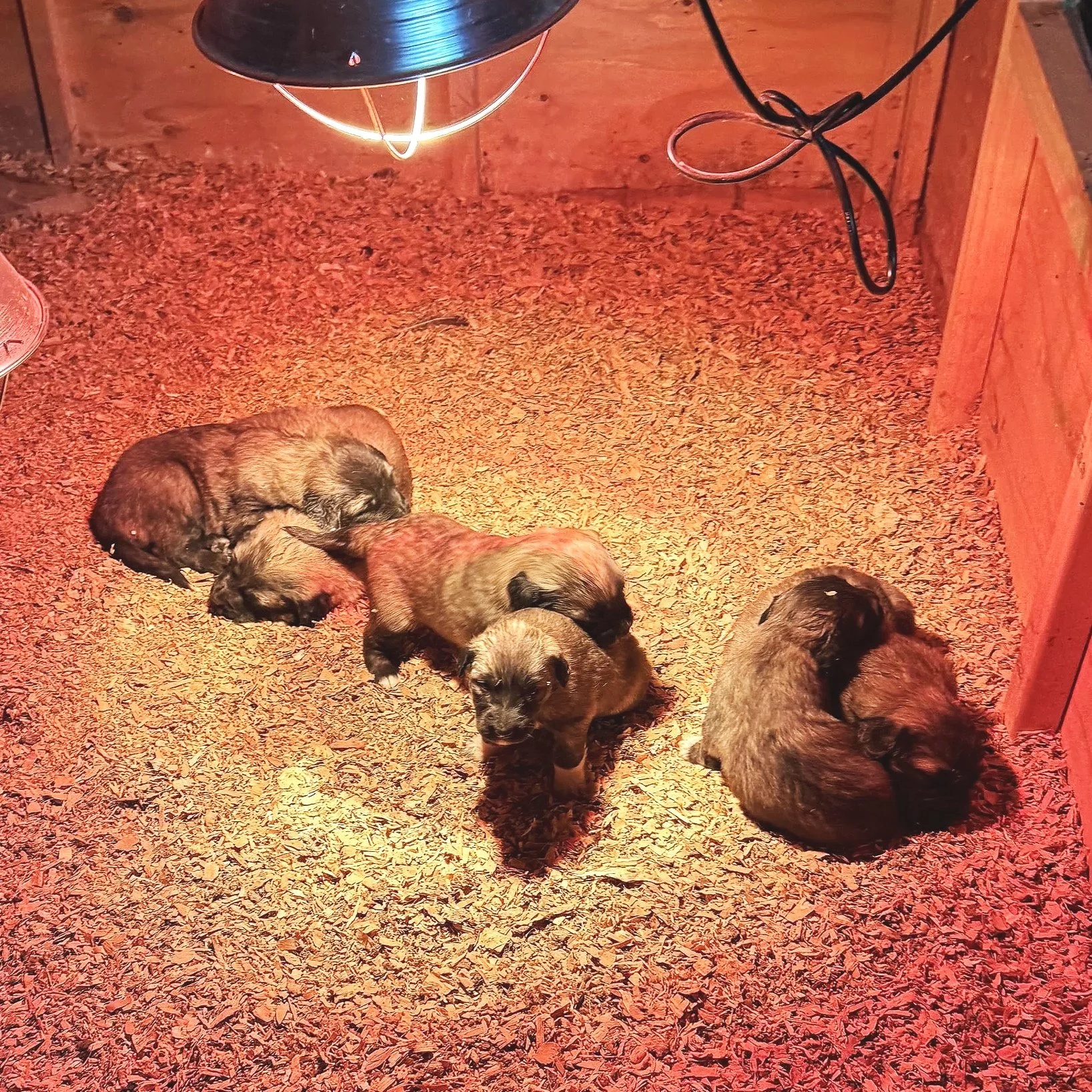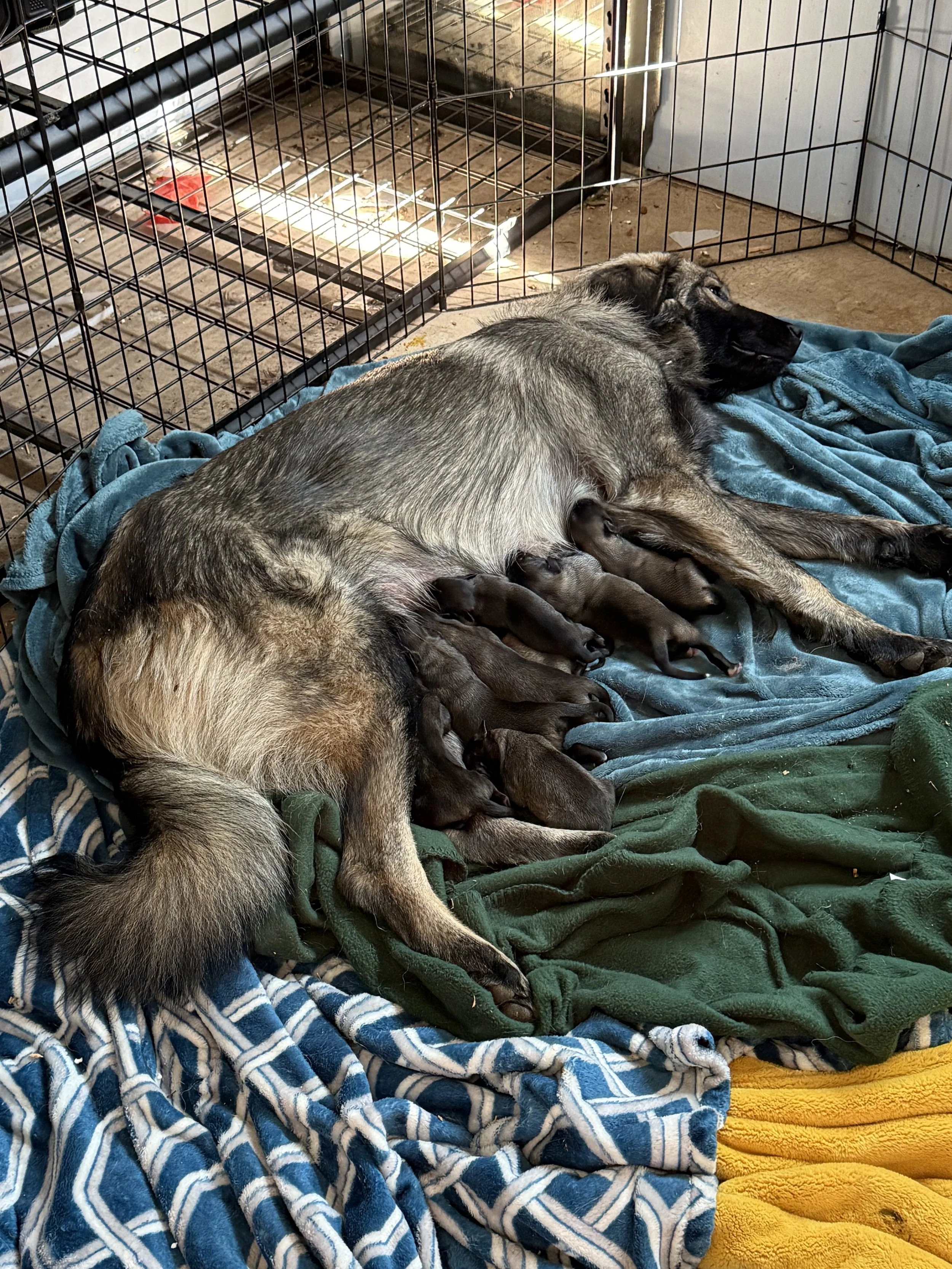It Takes a Farm: How Community Keeps Us Going
Any farmer who tells you they do it on their own is not to be trusted.
That’s something I’ve learned time and time again, but never more clearly than this week.
Farming is a constant dance between exhaustion and reward, between pride and humility. Just when you think you’ve got things under control, nature—or life—finds a way to remind you who’s really in charge. This week, that reminder came in the form of my dog, Olga, and a rough bout of mastitis.
Olga isn’t just any dog. She’s one of our livestock guardian dogs, raised and trained to protect our farm’s heart—the birds. Her aim in life is to keep them safe from predators like coyotes, raccoons, and hawks, as well as anything else that might see our chickens, ducks, or turkeys as an easy meal. She’s loyal and fierce, with a big personality and a stubborn streak to match. Olga doesn’t always do what you want her to do—but she always does what she thinks is right.
A few days ago, though, I noticed something wasn’t right. Olga’s energy was low. She refused to nurse her puppies, and her normally sharp, alert eyes had lost their spark. A quick check and a call to the vet confirmed it: mastitis.
If you’ve ever had a sick animal, you know the helplessness that follows. You can do everything right—keep things clean, feed them well, follow every bit of advice—and still feel like it’s not enough. Over the next couple of days, I managed to get Olga to milk only a handful of times. Each attempt was a struggle. The puppies cried, I tried every trick I knew, and every time it felt like I was failing her.
Last night, I sat beside her for nearly two hours, coaxing, encouraging, praying for her comfort and for those tiny mouths depending on her. Nothing. Finally, sometime close to 10:30 p.m., I gave in to exhaustion and did something farmers often resist doing: I asked for help.
I sent an email to my neighbors—the Brooks family—because I knew they kept dairy goats. My vet had mentioned that goat milk would be the best substitute for puppies if Olga couldn’t feed them herself. So, I wrote a message asking, rather desperately, if they might have a little to spare.
Now, it’s not a small ask. The Brookses run a thriving natural goat milk soap business—Brooks Family Farm—and every drop of milk they produce is accounted for. Still, within ten minutes, they replied:
“We’ll drop off frozen milk by 7:30 a.m., and let us know what we can do to help.”
Ten minutes. That’s the kind of neighbors they are.
The next morning, I walked out to the egg stand just after sunrise, the world still heavy with dew. Sitting there, like a little miracle, was a cooler filled with six quarts of frozen goat milk—ready to defrost and feed a hungry litter of pups. I can’t explain the relief I felt at that moment. It wasn’t just about the milk; it was the feeling of being cared for, of knowing you’re not out here doing it alone.
I managed to coax Olga into feeding her puppies while the goat milk thawed—a small victory after days of struggle. When the milk was finally ready, the puppies got their second meal, this time from our neighbors’ goats, and for the first time all week, they were quiet, full, and content. The farm, for a brief and beautiful moment, was peaceful again.
Today, I’ve been able to breathe. The chores still pile up—eggs to wash, fences to mend, birds to move—but I’ve been able to move through them without the weight of worry on my shoulders. That calm came not from anything I did alone, but from the generosity of a community that looks out for one another.
That’s the truth about farming that doesn’t make it into the glossy pictures: you can’t do it by yourself. Not really. Behind every “self-sufficient” farmer is a network of friends, neighbors, and kind strangers who step in when you’re at your limit. Whether it’s goat milk for puppies, a borrowed trailer, or a hand loading feed, farming thrives on the quiet kindness of others.
It reminded me why I do what I do. Lord-Cranmer Farm isn’t just about eggs or poultry or turkeys—it’s about connection. The same values that built this community keep it alive: generosity, trust, and the willingness to show up for one another. I’ve seen it in the farmers who share pasture space when someone’s grass runs short, in customers who prepay for their Thanksgiving turkeys to help us buy feed, and now, in a neighbor who left a cooler of goat milk at my farmstand before sunrise.
If you’ve ever supported a local farmer, know that your kindness ripples out farther than you can imagine. It doesn’t just feed animals or buy seed—it feeds the spirit of people trying to live and work in rhythm with the land.
So, to the Brooks family—thank you. For your milk, your generosity, and your example.
And to everyone who believes in the power of community—thank you for reminding me that we’re never as alone as we think we are.
Because the truth is simple: it takes a farm to raise a farmer.
check out Brooks Family Farm and support their generosity by clicking the link below.
Olga and Alaric are inspecting the delivery.
Six of the puppies calmed after some goat’s milk.
Olga at feeding time. (Before Mastitis)



